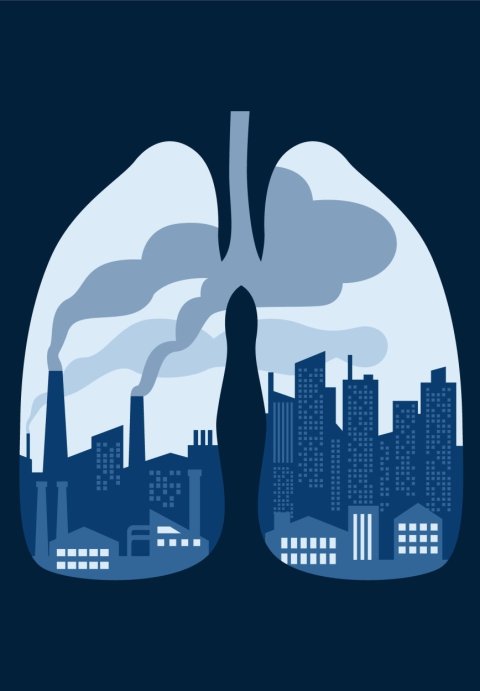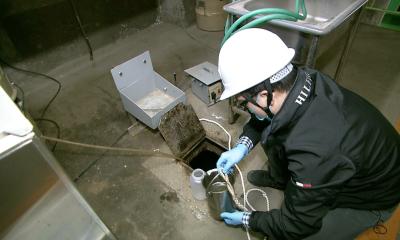News • Environmental health
Long Covid: researchers explore impact of air pollution
A new study explores the association between different environmental exposures and long-Covid in a Catalan population cohort

© males_design - stock.adobe.com
This is the main conclusion of a study led by the Barcelona Institute for Global Health (ISGlobal), a centre supported by “la Caixa” Foundation, in collaboration with the Germans Trias i Pujol Research Institute (IGTP), and published in Environmental Health Perspectives.
Long-Covid is a heterogeneous condition in which symptoms like fatigue, breathlessness, and cognitive issues persist for months after a Covid-19 infection and cannot be explained by other diagnoses. The real burden of long-Covid remains unclear, but millions of people are estimated to be affected worldwide. Its risk factors are also not well understood, since even people with mild or no symptoms during acute infection can develop long-Covid.
“We previously found that air pollution exposure is linked to a higher risk of severe Covid-19 and a lower vaccine response, but there are very few studies on long-Covid and the environment,” explains Manolis Kogevinas, ISGlobal researcher and senior author of the study. In this study, he and his colleagues investigated whether air pollution and other environmental exposures such as noise, artificial light at night, and green spaces, were associated with the risk- or persistence- of Long-Covid.
Recommended article

Article • Covid-19
Coronavirus update
Years after the first outbreak and spread of coronavirus Sars-CoV-2, its impact can still be felt in everyday life. Keep up-to-date with the latest research news, political developments, and background information on Covid-19.
The study followed over 2,800 adults of the COVICAT cohort, aged 40- 65 years living in Catalonia who during the pandemic completed three online questionnaires (2020, 2021, 2023). These surveys collected information on Covid-19 infections, vaccination status, health status, and sociodemographic data. Researchers estimated residential exposure to noise, particulate matter, ozone, nitrogen dioxide, green spaces, and light at night for each participant.
This hypothesis [that air pollution increases the initial infection and consequently, the risk of long Covid] is supported by the association between particulate matter and the most severe and persistent cases of long-Covid, but not with all cases of long-Covid
Apolline Saucy
The analysis showed that one in four people who contracted Covid-19 experienced lingering symptoms for three months or more, with 5% experiencing persistent symptoms for two years or more. Women, individuals with lower education levels, those with prior chronic conditions, and those who had severe Covid-19 were at highest risk of long-Covid. Vaccination, on the other hand, made a positive difference: only 15% of vaccinated participants developed long-Covid compared to 46% of unvaccinated ones.
Exposure to particulate matter (PM2.5 and PM10) in the air was associated with a slight increase in the risk of persistent long-Covid (i.e. people who reported long-Covid in 2021 and whose symptoms were still present the last week before the 2023 interview). The risk of persistent long-Covid increased linearly with greater exposure to particulate matter in the air. In contrast, factors such as nearby green spaces or traffic noise showed little impact on long-Covid.
The researchers note that while air pollution may not directly cause long-Covid, it could increase the severity of the initial infection, which, in turn, raises the risk of long Covid. “This hypothesis is supported by the association between particulate matter and the most severe and persistent cases of long-Covid, but not with all cases of long-Covid,” says Apolline Saucy, first author of the study.
Further research is needed to break down the different types of long-term symptoms and get a more detailed picture of how environmental factors might play a role. “This type of studies is particularly relevant as more people continue to recover from Covid-19 and deal with its potential long-term effects,” says Kogevinas.
Source: Barcelona Institute for Global Health
27.11.2024











